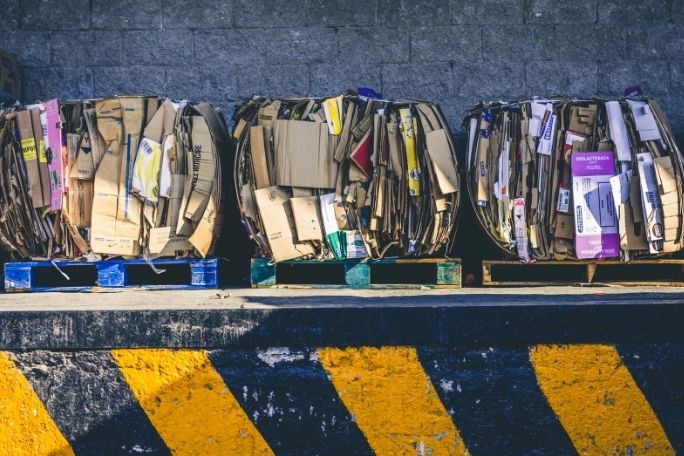Lesson summary
Students review the waste management system in the school, develop a plan to cut the amount of solid waste in the school and develop another plan to reduce the amount of paper used by the school that is generated as waste.
Learning intentions:
Students will...
- recognise that everyone in the school produces solid waste, and the school is already taking steps to reduce this, but there are steps the school community can all take to cut this waste even further
- understand that a waste management system includes the containers in the school used to collect different types of waste and the processes used to deal with them
- understand that a school uses large quantities of paper but applying the principles of the Waste Hierarchy can drastically cut this usage.
Success criteria:
Students can...
- identify waste problems in their community and make a plan for addressing those problems.
Lesson guides and printables
Curriculum links
Select your curriculum from the options below.
Lesson details
Curriculum mapping
Australian Curriculum content descriptions:
Year 7 Geography:
- Present findings, arguments and ideas in a range of communication forms selected to suit a particular audience and purpose; using geographical terminology and digital technologies as appropriate (ACHGS053)
- Reflect on their learning to propose individual and collective action in response to a contemporary geographical challenge, taking account of environmental, economic and social considerations, and predict the expected outcomes of their proposal (ACHGS054)
Year 8 Geography:
- Present findings, arguments and ideas in a range of communication forms selected to suit a particular audience and purpose; using geographical terminology and digital technologies as appropriate (ACHGS061)
- Reflect on their learning to propose individual and collective action in response to a contemporary geographical challenge, taking account of environmental, economic and social considerations, and predict the expected outcomes of their proposal (ACHGS062)
Year 9 Geography:
- The effects of the production and consumption of goods on places and environments throughout the world and including a country from North-East Asia (ACHGK068)
- Present findings, arguments and explanations in a range of appropriate communication forms, selected for their effectiveness and to suit audience and purpose; using relevant geographical terminology, and digital technologies as appropriate (ACHGS070)
- Reflect on and evaluate findings of an inquiry to propose individual and collective action in response to a contemporary geographical challenge, taking account of environmental, economic, political and social considerations; and explain the predicted outcomes and consequences of their proposal (ACHGS071)
Year 10 Geography:
- Human-induced environmental changes that challenge sustainability (ACHGK070)
- Present findings, arguments and explanations in a range of appropriate communication forms, selected for their effectiveness and to suit audience and purpose; using relevant geographical terminology, and digital technologies as appropriate (ACHGS079)
- Reflect on and evaluate findings of an inquiry to propose individual and collective action in response to a contemporary geographical challenge, taking account of environmental, economic, political and social considerations; and explain the predicted outcomes and consequences of their proposal (ACHGS080)
Syllabus outcomes: GE4-8, GE4-2, GE4-3, GE4-4, GE4-5, GE5-8, GE5-2.
General capabilities: Critical and creative thinking.
Cross-curriculum priority: Sustainability OI.3, OI.8.
Time required: several 60 min sessions.
Level of teacher scaffolding: Medium – direct activity.
Resources required
- Art materials
- Devices with internet access
Skills
This lesson is designed to build students’ competencies in the following skills:
- Communication
- Community engagement
- Critical thinking
- Problem solving
- Collaboration
Additional info
Following this lesson plan is an ideal way for your school to take part in Schools Clean Up Day or a Clean Up on any day of the year. You’ll be joining thousands of amazing teachers in making a difference and creating positive environmental change.


Welcome back!
Don't have an account yet?
Log in with:
Create your free Cool.org account.
Many of our resources are free, with an option to upgrade to Cool+ for premium content.
Already have an account?
Sign up with:
By signing up you accept Cool.org's Terms and Conditions(Opens in new tab) and Privacy Policy(Opens in new tab).